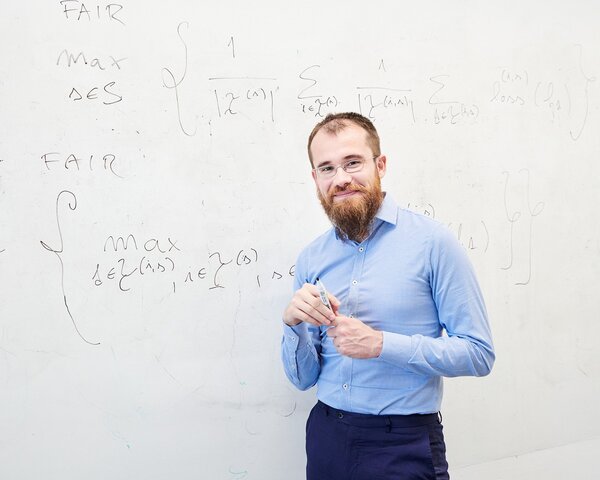In today's world, artificial intelligence (AI) powers a number of systems such as recommendation of content on social media, machine vision of self-driving cars, or decisions on (non)granting bank clients a loan. These examples clearly demonstrate the fundamental impact AI algorithms have. Their satisfactory functioning is therefore crucial for individuals and for society as a whole. The AutoFair project will deal with the design of explainable and transparent AI algorithms. European Comission's Horizon Europe programme will fund this project with up to 3 840 846 EUR.
8 research organizations from 5 different countries
This three-year AutoFair project was selected for funding as the only project coordinated by an institution from the Czech Republic within the call HUMAN-01. Its principal investigator is Jakub Mareček from the Optimization cluster at our center. The Czech Technical University will receive almost 600 000 EUR. Rest of the funding will be shared by seven other members of the consortium, including prestigious universities, such as Imperial College London, the Israeli Institute of Technology Technion and the National and Capodistrian University of Athens.
Partners from the industry will provide the necessary data for modeling and verify the applicability of the results in practice. Among those will be big tech companies as well as local AI startups.

Human-compatible AI with guarantees
The goal of the AutoFair project is to guarantee that AI algorithms will not favor anyone. The decision-making process poses a considerable risk when using AI acting as a blackbox. The algorithms can satisfy many people, but for some it may work very poorly. One strategy for dealing with this risk is to carefuly work with data. The choice of data for learning the system must be representative and not transfer inequalities in society to the development of algorithms. The opposite strategy is to consistently explain the operation of AI systems and its limitations to the public. The later strategy considers only the communication aspects after the implementation itself. The AutoFair project combines both of these extreme approaches: it wants to improve the algorithms themselves while educating end users. It therefore draws on knowledge from computer and data sciences, control theory, optimization and other scientific disciplines, including ethics and law.
Issues related to the ethics of artificial intelligence are commonly explored in computer vision. "Many people use a face recognition system to unlock their mobile phones. However, for a relatively long time, it only worked reliably for white men, and until recently the success rate for ethnic minorities was significantly lower. This problem due to unrepresentative data has already been eliminated but AI has a number of other uses, where similar ethical problems persist to this day,” explains the urgency of the project its coordinator Jakub Mareček.
Three case studies in preparation
The project findings will be tested on three case studies of industrial use across three sectors. The first is the automation of fair evaluation in recruitment, the second is the elimination of gender inequality in advertising and the third is the area of fin-tech, specifically the elimination of discrimination against bank clients. The development of these case studies will be accompanied by expert groups consisting of representatives of business, public authorities, non-governmental organizations and politicians.
The view of all stakeholders will be central to the research process and will increase the potential for the practical application of project results. The real implementation of scientific knowledge and the ethical use of artificial intelligence are the main features of the AutoFair project. "I believe that the outputs of the project will also be reflected in the planned regulation of artificial intelligence, which is being prepared by the European Commission," adds Jakub with determination and hope in his voice.
Photos by Petr Neugebauer (FEE CTU).

